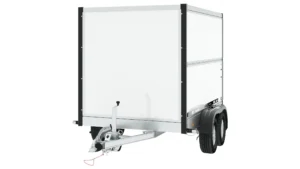Navigating the Challenges: Rough Terrain Forklifts in Pipeline Installation
2025-07-12 03:40:31
The rugged demands of pipeline installation require equipment capable of handling uneven, muddy, or rocky terrain. Rough terrain forklifts are engineered with reinforced chassis, high-traction tires, and powerful engines to maintain stability and performance in such conditions. According to industry reports, the global market for rough terrain forklifts is projected to grow at a CAGR of 6.2% by 2027, driven by increasing infrastructure projects in remote areas.
One of the key advantages of rough terrain forklifts for pipeline installation is their ability to transport heavy materials like steel pipes, valves, and welding equipment across unprepared sites. Unlike standard forklifts, these machines feature enhanced load capacities—often exceeding 10,000 lbs—and adjustable suspension systems. A 2023 study by Construction Equipment Magazine found that projects using rough terrain forklifts reduced material handling time by 32% compared to traditional methods.
Safety remains a top priority in pipeline installation, and rough terrain forklifts incorporate advanced stability control systems to prevent tipping on slopes. Operators benefit from features like automatic load leveling and anti-slip differentials, which are critical when working on inclines. OSHA compliance data indicates a 45% reduction in forklift-related accidents on pipeline sites since the adoption of these specialized machines.
Fuel efficiency and environmental considerations are also driving innovation in rough terrain forklifts. Many newer models now utilize hybrid or electric powertrains, reducing emissions by up to 40% compared to diesel-only counterparts. A 2022 report from the International Energy Agency highlighted that pipeline contractors using eco-friendly rough terrain forklifts achieved a 15% reduction in carbon footprints per project.
Looking ahead, the integration of telematics and IoT in rough terrain forklifts is set to further optimize pipeline installation workflows. Real-time monitoring of machine health, fuel consumption, and operator behavior allows for predictive maintenance and cost savings. Industry analysts predict that by 2025, over 60% of rough terrain forklifts will be equipped with smart technology, making them indispensable for pipeline projects worldwide.








